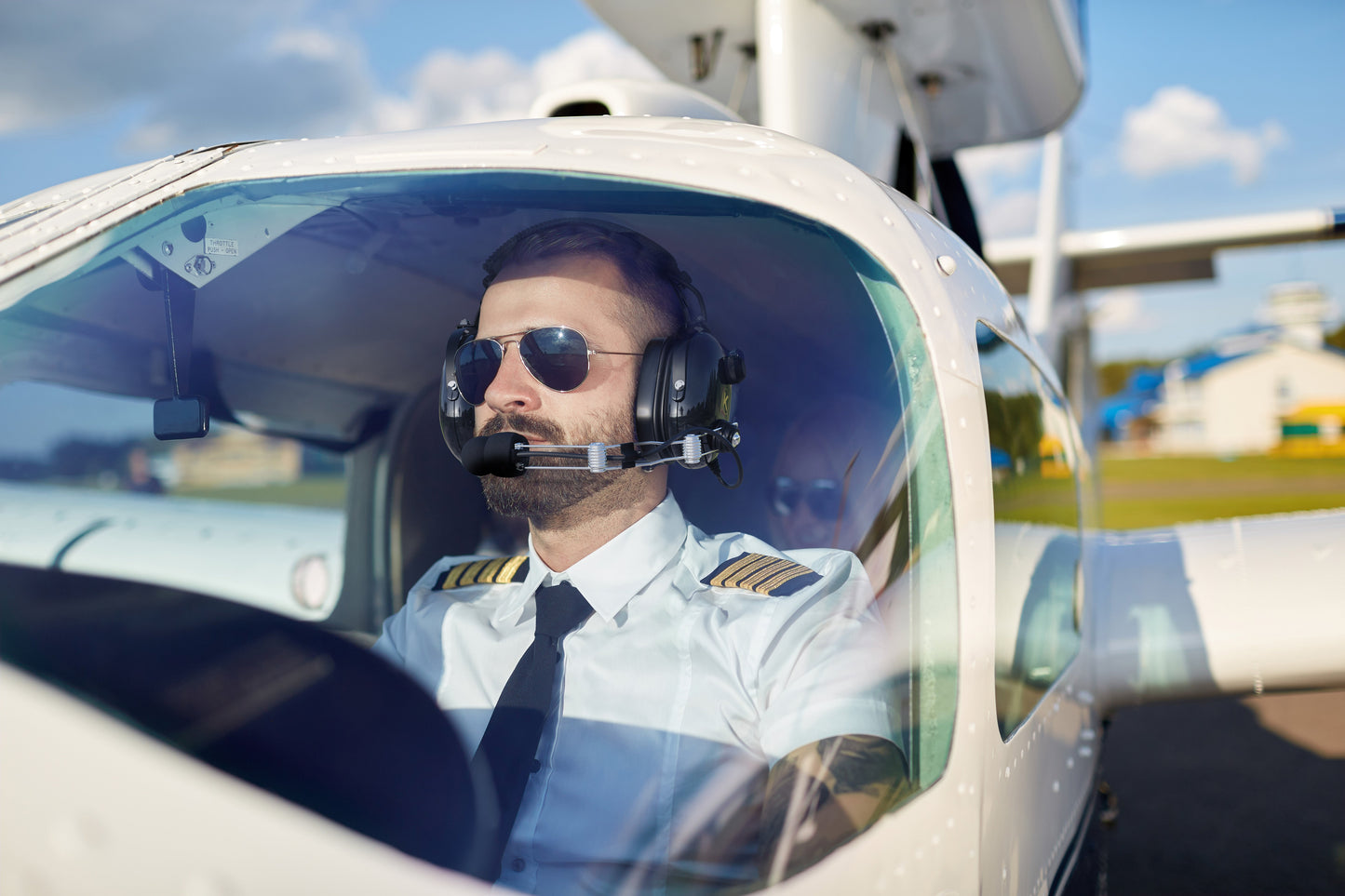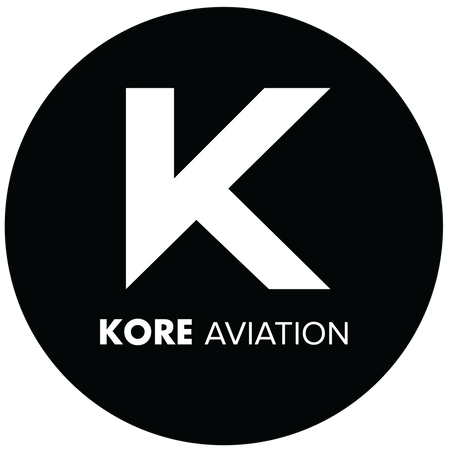
Kore Aviation - If you are planning a future in aviation, one big question always comes up early: do pilots need a degree?
You might see airline pilots with college degrees, or you might hear about pilots who took off into the skies without ever stepping into a university. So what’s the truth?
This article will guide you through:
- What the FAA and airlines actually require
- Pros and cons of college paths
- Types of degrees that help
- Career success without college
- Gear tips, including Kore Aviation headsets for student pilots
Let’s get into it.
FAA Regulations: Do You Need a Degree to Get a License?
First, let’s clarify: you do not need a degree from the FAA or ICAO just to hold pilot licenses (private, commercial, instrument, or even ATP in many jurisdictions).
- For example, to get a Commercial Pilot Certificate in the U.S., the requirements are flight hours, passing knowledge & practical tests, no degree is mandated.
- In many countries, aviation authorities focus on pilot training, exams, medical fitness, and experience, not academic degrees.
- Degrees become relevant mostly for employment, not certification.
So in pure legal / regulatory terms: you do not need a degree to become a pilot.
| Certificate | Degree Required? | What Is Required |
|---|---|---|
| Private Pilot License (PPL) | No | Flight hours, ground school, pass written and flight exams |
| Commercial Pilot License (CPL) | No | Additional training, cross-country experience, exams |
| Airline Transport Pilot (ATP) | No | 1500 hours total time, age 23+, pass ATP check ride |
The FAA focuses on skill, knowledge, health, and flight hours, not academics.
Read More: Full Guide to Private Pilot License
What About the Airlines?
While you don’t need a degree to fly legally, airlines are a different story.
Some airlines do not require a degree at all. Others prefer applicants who have a degree, especially during high competition.
| Airline Type | Degree Requirement |
|---|---|
| Regional Airlines | Often not required |
| Major US Airlines | Preferred but not always required |
| Military / Government Aviation | Often required |
| International Airlines | More likely to require a degree |
In 2023, Delta Air Lines officially removed the four-year degree requirement, though it is still listed as “preferred.” Other airlines like United and American are following similar trends.
Recent Shifts & Trends
- Some major airlines have dropped strict degree requirements due to pilot shortages and changing hiring dynamics.
- Still, many airlines prefer pilots with bachelor’s degrees, especially when comparing two otherwise equal candidates.
- In some markets, having a degree might reduce the required flight hours for hiring or improve promotion prospects.
Also Read: 10 Reasons to Become a Pilot
Degree Path vs Direct-to-Cockpit: What’s Better?
Here’s a simple side-by-side comparison:
| Route | What It Offers | What You Might Miss |
|---|---|---|
| College + Flight Training | Degree, theory, connections | More time and tuition cost |
| Flight School Only | Fast path to cockpit, less debt | May need to work harder to stand out |
If your goal is to become a flight instructor, charter pilot, or regional airline pilot, you can do it without college. But a degree can be helpful when you aim for major airlines or international carriers.
Which Degrees Work Best for Pilots?
If you choose to pursue a degree, here are useful fields to consider:
| Degree | Value for Pilots |
|---|---|
| Aviation / Aeronautical Science | Direct relevance to pilot skills and operations |
| Aerospace / Aeronautical Engineering | Deeper aircraft systems knowledge |
| Physics / Mathematics | Strong foundation for performance, navigation, systems |
| Business / Management | Prepares for airline operations, leadership roles |
| Computer Science / Data | Useful for automation, avionics, systems work |
Many universities offer integrated programs where you earn your degree while doing flight training.
Flying with the right gear matters as much as your training. If you are a student pilot or building hours, you need a dependable headset.
Explore Kore Aviation premium and affordable headsets, designed for durability to stay sharp in the cockpit.
When to Decide: Degree Now or Focus on Flight?
Here are questions to guide your choice:
- What’s your target job? If aiming for major airlines or international careers, a degree may help.
- How much time and capital do you have? Flight training is expensive.
- Can you study part time? Many pilots combine work and school.
- Which path gives you flexibility? A degree in a broader field gives options outside aviation.
Can You Compete Without a Degree? Yes, If You Focus on This
If you skip college, you can still build a standout resume:
- Earn all major pilot ratings, such as Instrument, Multi-Engine, CFI, etc.
- Build hours fast through instruction, charter, or banner towing
- Maintain strong communication and CRM skills
- Invest in professional equipment, like your aviation headset
- Attend aviation seminars, workshops, or online certifications
Airlines care about performance, safety, and professionalism. If you show that with experience and gear, you can still succeed.
Paths to a Pilot Career Without a Degree
You can absolutely become a successful pilot without a college degree. Here are common paths and tips:
1. Build Flight Hours & Credentials
- Earn private, instrument, commercial, and multi‑engine ratings
- Log hours as flight instructor (CFI), charter pilot, banner tow, aerial survey, etc.
- Gain airline minimums (e.g. 1,500 hours for ATP)
2. Pursue Airline Cadet / Ab Initio Programs
Many airlines and academies now offer cadet pipelines that train pilots from scratch with guaranteed interview or first officer pathways, sometimes without needing a degree.
3. Use Related Certifications & Experience
Skills and credentials like:
- Flight instructing
- Simulator instructor or ground school teaching
- Specialized ratings (instrument, upset recovery, turbine experience)
help show value even if formal academics are missing.
4. Earn a Degree Later or Part Time
Some pilots defer or study part time while working. By the time they apply to airlines, they have both flight experience and a degree. Many programs now support remote or flexible schedules.
Regional, National & International Differences
The role of a degree varies by region and market:
- In some countries, degree requirements or preferences are stricter.
- Regional airlines often care more about hours and skills than degrees.
- In slow hiring markets, degree becomes more of a filter.
- Some airlines launch pilot pathway programs that allow entry without a degree, especially in tight pilot supply periods.
So research airlines in your region to see their preferences.
Timeline Example: Degree + Flight vs Flight-Only
Here’s a rough timeline for each route:
| Timeline Stage | Degree + Flight | Flight-Only Route |
|---|---|---|
| Years 1–2 | Complete general education, start flight training | Full time flight training, get PPL, instrument |
| Years 2–4 | Continue degree + advanced ratings | CFI or charter flying, build hours |
| Year 4+ | Graduate, apply to airlines with degree + experience | Continue accumulating hours, build resume |
| By year 5–6 | Enter first airline role (if competitive) | Enter airline or regional if hours & record suffice |
Keep in mind: actual durations vary greatly depending on your location, financing, and opportunities.
Discover More: How Long Does It Take to Become a Pilot?
How the Hiring Landscape Is Changing
In today’s world:
- Airlines are more open than ever to pilots without degrees
- Pilot shortages are pushing them to prioritize hours and attitude
- Your headset, logbook, and interview matter more than your GPA
Even flight schools are offering degree credit for time spent flying, and colleges let you finish degrees while working full-time.
So the playing field is more open than before.
Common Questions: Do Pilots Need a Degree?
-
Can I fly a commercial jet without college?
Yes. As long as you meet airline requirements and have your ATP, you are eligible. -
Is aviation school better than a university degree?
It depends on your goals. Aviation school gets you flying faster. A degree helps long-term flexibility. -
Do international airlines require degrees?
Some do. Airlines in the Middle East, Asia, and Europe may require formal academic qualifications. -
Is a degree in aviation necessary?
No. Airlines often accept any bachelor's degree. -
Can I get a degree later while flying?
Yes. Many pilots earn degrees online or part time after getting hired. -
Can I fly for airlines without a degree?
Yes. Many pilots begin with no degree, using skills, ratings, and experience to qualify for roles. -
Is a degree required in the military or for some airline contracts?
Yes. Many military pilot roles require college degrees. In some airlines, certain contracts or government carriers may also insist on degrees. -
Will degree holders always get hired first?
Not always, but when comparing qualified candidates, degree holders often have an edge. -
How much does a degree cost me in time & money?
It depends on institution, country, full vs part time, but expect significant cost and extra time away from flight training. -
Does the type of degree (aviation vs non-aviation) matter?
Sometimes. Aviation or engineering degrees are more directly relevant. But many airlines accept any bachelor degree if candidates are strong in other areas. -
Can I get college credit from flight training?
Yes. Many universities and aviation programs allow certain flight training to count toward credit in aviation degree programs.
Final Thoughts: Do Pilots Need a Degree?
So, do pilots need a degree? Legally, no. Practically, sometimes yes.
If you want to:
- Get in the air faster
- Save money
- Focus on flight hours
You can go the non-degree route and build your path through training and flight experience.
But if you want to:
- Work for a global carrier
- Compete in tight job markets
- Keep your options open
A degree will help you stand out.
Whether you go with college or straight into flying, make sure your equipment matches your professionalism. The Kore Aviation KA-1 headset is a smart choice for student pilots who care about quality and comfort in the cockpit.
Stay sharp. Stay connected. Fly with confidence.

